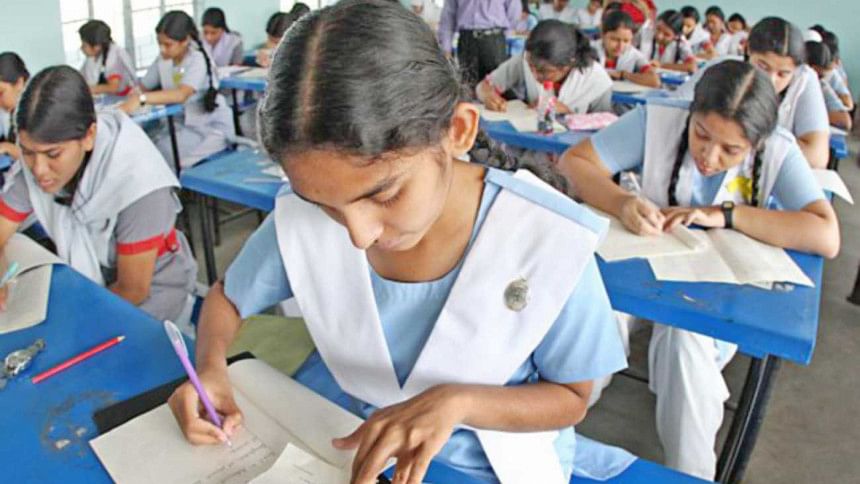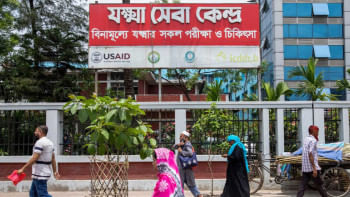Why did we take a step backwards?

Bangladesh has always been a country of promise, hope and progress, amidst the common plight faced by a developing nation. It has been a country which has achieved innumerable successes in social development and economic advancement. Yet today, we are collectively ashamed as we take a terrible step backwards in relation to protecting our girls from the horrors of child marriage.
President Abdul Hamid signed the controversial Child Marriage Restraint Act 2017, which essentially formalised legal ambiguousness in relation to courts allowing child marriage in certain so-called special cases. It allows a Bangladeshi child to get married in exceptional instances with parental consent and judicial authorisation, before reaching the minimum age limit as stipulated by law. Ironically, this bill introduced in 2017 by a government known for its efforts to ensure greater rights for women, is surely more regressive in its foundational structure than the Child Marriage Restraint Act of 1929. Although this particular Act does not specifically cater to girls only, it is a well-established statistical fact that the burden of child marriage has historically fallen on girls. This recent parliamentary bill has simultaneously institutionalised child marriage, caused a severe negative impact on the frail children's rights that we do have in our country, and signalled to many in our community, that there is a legal route to getting young children married off. This is indeed a shameful event for this country.
Whilst many media outlets have highlighted the statistical evidence to showcase the negativities surrounding this Act, one needs to look at it from a broader picture. In a country which has made outstanding strides in reducing infant mortality rates, enhancing primary education for girls, increasing female participation in the national labour force and intensifying maternal health resources, child marriage remains a huge scar in the face of modern Bangladesh. The government is right when it says that the sad reality is that many young girls are married off in rural Bangladesh illegally, and there are difficulties to constrain this. Yet, it is equally surprising to see that when this government has had the commendable guts to publicly come out and say loud and clear that there is a huge problem, rather than tackling it head on, it has institutionalised a highly contentious and backsliding measure to "address" the plight of young girls in this country.
UNICEF reports indicate a surge in child marriages in recent years, with current data suggesting that 18 percent of girls are married off before the age of 15. To put it into simpler terms, imagine your daughter being married off before she even takes her O-Level or SSC examinations. At a time when we as a country should be mustering up our courage to put a halt to these practices, our government seems to have made a terrible blunder.
And when the proponents of this institutional architecture mention these so-called special cases, they are effectively alluding to instances of teenage pregnancy or senseless reference to her honour. How can we protect the 'honour' of a child, if we are telling her that our legal provision allows for her to be married before she is 18, and have a child at the same time when she herself is still legally a child? How can we reduce population growth and enhance progressive youth enhancement projects if we are telling our girls that the judicial system has a way to legitimise a forced act associated with the horrors of child betrothal, a severe misinterpretation of cultural and religious doctrines and a highly backward practice? It is no secret that Bangladesh has one of the world's highest rates of child marriages, and one sincerely hopes that such a scheme, that too approved by the highest offices of the land, does not have a miserable impact on the future of our girls.
An interesting statistic shows that for each additional year a girl in rural Bangladesh is not married, she will attend school an additional 0.22 years on average. On a broader scale, the impact of even greater education enrolment for girls in our country, for the future of a sustainable Bangladesh, is more important than ever before. The associated tremors of child marriage such as torture, trafficking, sexual abuse and mental health, are of course core concerns for Bangladesh to address immediately.
As such, rather than enforcing a misguided law, one hopes that the Bangladeshi government directs tangible state resources towards the monitoring and prevention of child marriages in rural Bangladesh. Education and information outreach through state-level programmes will surely go a long way in improving the knowledge of parents in regards to child marriage. And most importantly, we cannot and must not let poverty and inequality be the root cause of parents forcing their children into an unholy alliance, that too at such young ages. It is our societal responsibility to protect our girls, and we need to do more to ensure that our government is not forced to take such a drastic step that may very well endanger many bright future entrepreneurs, doctors, teachers, artists and lawyers of the next generation.
Female leadership at the highest echelon of our state has been present since 1991. It is indeed a proud achievement for us. Nevertheless, that is not the only side to the story of women's rights in our country. The horrors of child marriages are real, and today we ponder whether we have taken the biggest step backwards in our fight against this brutal practice. Our girls, and not those who treat them as commodities, are in need of greater protection. Prevention, not legal institutionalisation, is needed. The effects of the Child Marriage Restraint Act 2017 will be seen in the days to come, and one only hopes that our misgivings are proven wrong by the government. But if indications are to be trusted, then this is, in no uncertain terms, an approach in the wrong direction, especially considering how far we have come in the last 46 years.
The writer is a third year undergraduate student of Economics and International Relations, University of Toronto.
Email: [email protected]

 For all latest news, follow The Daily Star's Google News channel.
For all latest news, follow The Daily Star's Google News channel. 



Comments